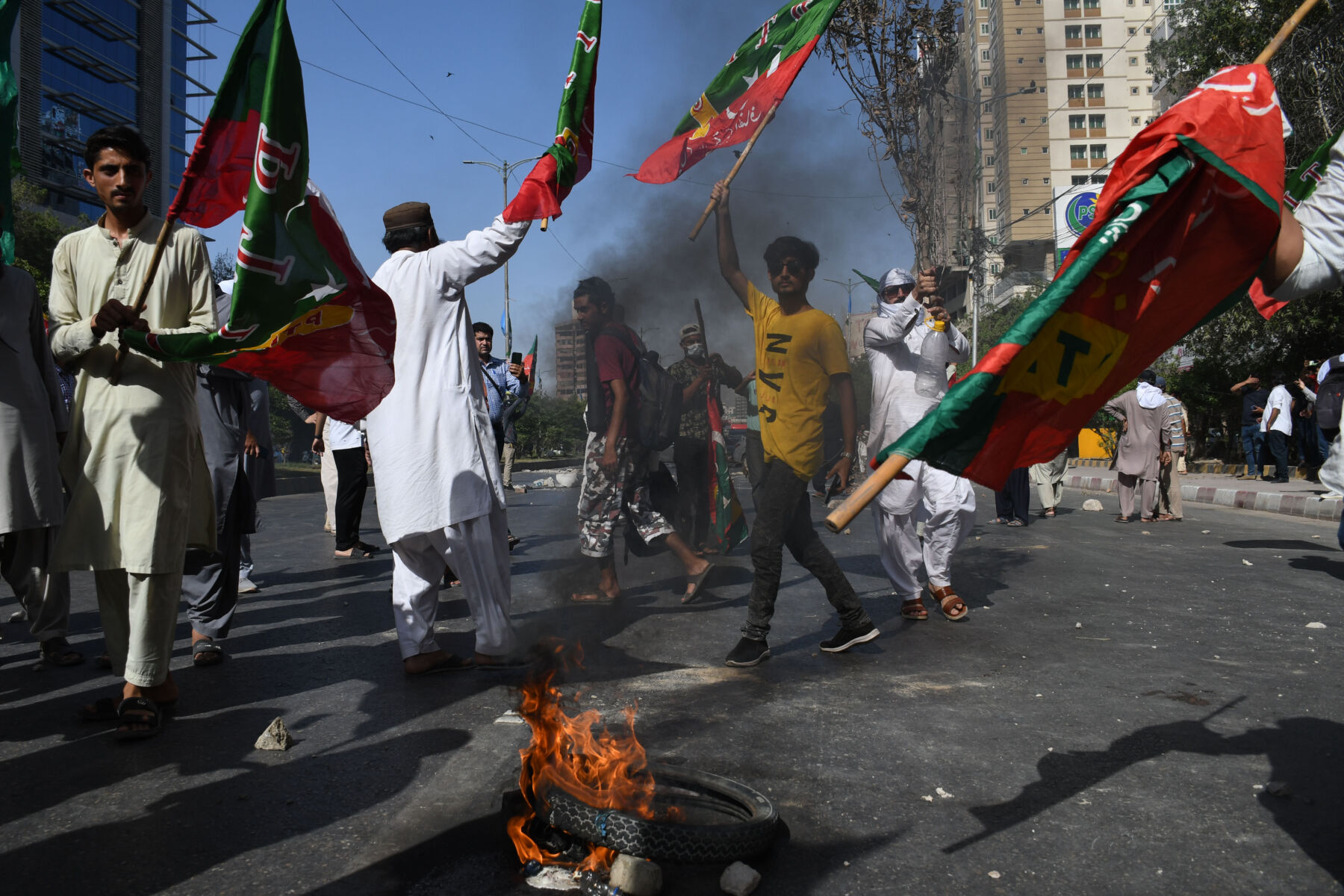Pakistani military vows punishment for unrest masterminds after Khan’s arrest

The Pakistani military has pledged to take action against those responsible for the violence that occurred last month, following the brief arrest of former Prime Minister Imran Khan on corruption charges. The military’s top brass convened in Rawalpindi and expressed their determination to bring those who attacked military installations and monuments to justice.
The military also refuted allegations of human rights abuses after Khan’s Pakistan Tehreek-e-Insaf (PTI) party claimed some of its members were tortured and physically abused while in custody. In a statement, the military said that efforts to create distortions and hide behind imagined human rights violations were futile.
The statement also emphasised the need to tighten the law around the “planners and masterminds” who orchestrated the politically driven rebellion against the state and its institutions, intending to create chaos in the country.
Following Khan’s arrest on May 9 at an Islamabad court, thousands of his supporters protested across the country. Police and government buildings, as well as military assets and installations, were targeted in the unrest. The government has accused Khan’s supporters of being behind the violence, but the former prime minister has denied these allegations and called for an independent investigation.
In the aftermath of the unrest, thousands of PTI supporters, top leaders, and journalists were detained. More than 80 senior PTI members have left the party in recent weeks. Khan, a 70-year-old former cricketer, has consistently denied corruption allegations, claiming that the charges are politically motivated to prevent him from participating in upcoming elections.
New York-based Human Rights Watch (HRW) issued a statement last week urging the government not to try civilians in military courts, as doing so would violate the country’s obligations under international law. Dozens of people have been handed over to the military for trials related to the violence last month.
In a separate development, police in Pakistan have accused Khan of abetting the murder of a lawyer in Quetta, the capital of Balochistan province. Over 100 cases, including incitement to violence and “terrorism,” have been filed against Khan since his removal from power last year.
Arif Rafiq, a political risk adviser on South Asia, believes the army’s statement indicates that it is seeking an end to Khan’s political career and his party by any means necessary. He also suggests that the military is signalling that it will not allow other forces, including the judiciary, to obstruct its efforts. Rafiq added that the Quetta murder case and the statement’s language imply that the army is preparing for the possibility of Khan being tried in cases where the punishment could be death.
Latest Thailand News
Follow The Thaiger on Google News:


























